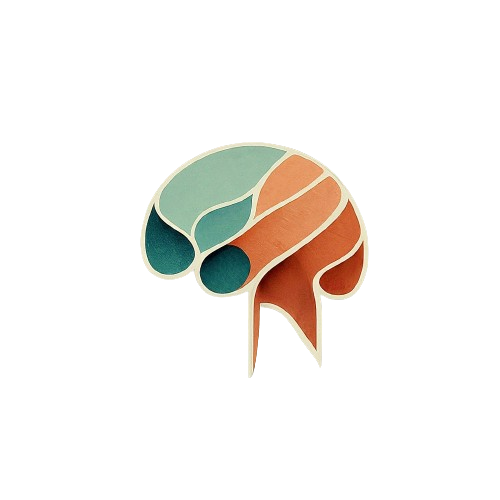Depression is a pervasive mental health condition that affects millions of people worldwide. Among its various forms, unipolar depression, also known as major depressive disorder, stands out as one of the most common and challenging to manage. In this guide, we’ll delve deep into the world of unipolar depression, exploring its symptoms, causes, and the most effective treatment options available today.
Understanding Unipolar Depression
Unipolar depression, often used interchangeably with major depressive disorder, is a serious mental health condition characterized by persistent feelings of sadness, hopelessness, and a loss of interest in activities once enjoyed. Unlike bipolar disorder, which involves alternating periods of depression and mania, unipolar depression is marked by depressive episodes without manic or hypomanic phases.
The Impact of Unipolar Depression
The prevalence of unipolar depression is staggering:
- Affects 8.4% of the U.S. population
- More common among women than men
- Higher prevalence in younger adults (aged 18-25) compared to older age groups
- In 2020, 14.8 million adults experienced a severe episode of unipolar depression
- Approximately 66% of people with the disorder received treatment
These statistics underscore the importance of understanding, recognizing, and effectively treating unipolar depression.
Symptoms of Unipolar Depression
Unipolar depression is more than just feeling sad or down. It’s a persistent, intense state that significantly impacts daily functioning and relationships. The symptoms of unipolar depression can be both emotional and physical, often manifesting in various aspects of a person’s life.
Emotional Symptoms
- Persistent Sadness: A pervasive feeling of sadness or emptiness that doesn’t seem to lift.
- Loss of Interest: Anhedonia, or the inability to enjoy activities that were once pleasurable.
- Feelings of Worthlessness: Intense feelings of guilt, self-blame, or worthlessness.
- Hopelessness: A pessimistic outlook on life and the future.
- Irritability: Increased irritability or restlessness, especially in men and younger individuals.
- Difficulty Concentrating: Problems with focus, memory, and decision-making.
- Suicidal Thoughts: In severe cases, thoughts of death or suicide may occur.
Physical Symptoms
- Sleep Disturbances: Insomnia or excessive sleeping (hypersomnia).
- Changes in Appetite: Significant weight loss or gain unrelated to dieting.
- Fatigue: Persistent tiredness and lack of energy.
- Psychomotor Changes: Observable slowing of movement and speech, or agitation.
- Physical Aches: Unexplained headaches, back pain, or digestive issues.
It’s crucial to note that the severity and combination of symptoms can vary from person to person. To receive a diagnosis of unipolar depression, an individual must experience at least five of these symptoms for a minimum of two weeks, with at least one symptom being either persistent sadness or loss of interest.
Causes and Risk Factors of Unipolar Depression
Unipolar depression is a complex disorder with no single cause. Instead, it typically results from a combination of biological, psychological, and environmental factors. Understanding these potential causes and risk factors can help in early identification and intervention.
Biological Factors
- Genetics: Having a family history of depression increases the risk. Heredity is estimated to contribute to about 35% of cases.
- Brain Chemistry: Imbalances in neurotransmitters, particularly serotonin, norepinephrine, and dopamine, play a role in depression.
- Hormonal Changes: Fluctuations in hormones, such as during pregnancy, postpartum, or menopause, can trigger depressive episodes.
- Medical Conditions: Certain illnesses, such as thyroid disorders, chronic pain, or cardiovascular disease, can increase the risk of depression.
Psychological Factors
- Personality Traits: Certain personality types, such as those prone to pessimism or low self-esteem, may be more susceptible to depression.
- Cognitive Patterns: Negative thinking patterns and cognitive distortions can contribute to and maintain depressive states.
- Trauma: A history of childhood abuse or neglect can increase vulnerability to depression in adulthood.
Environmental Factors
- Chronic Stress: Prolonged exposure to stressful life situations can trigger depression.
- Major Life Changes: Significant life events, both positive and negative, can precipitate depressive episodes.
- Social Isolation: Lack of social support and feelings of loneliness can contribute to depression.
- Substance Abuse: Alcohol or drug abuse can both cause and exacerbate depressive symptoms.
Risk Factors
Several factors can increase an individual’s risk of developing unipolar depression:
- Gender: Women are twice as likely to be diagnosed with depression compared to men.
- Age: Young adults (18-25) have a higher prevalence of depression.
- Marital Status: Being divorced, separated, or widowed increases the risk.
- Socioeconomic Status: Lower income and education levels are associated with higher rates of depression.
- Comorbid Mental Health Conditions: Having other mental health disorders, such as anxiety disorders, increases the risk of depression.
Understanding these risk factors can help individuals and healthcare providers in early identification and prevention strategies.
Diagnosis of Unipolar Depression
Diagnosing unipolar depression involves a comprehensive evaluation by a mental health professional. The process typically includes:
- Clinical Interview: A detailed discussion of symptoms, medical history, and family history.
- Physical Examination: To rule out underlying medical conditions that may mimic depression.
- Laboratory Tests: Blood tests to check for thyroid function, vitamin deficiencies, or other medical issues.
- Psychological Evaluation: Using standardized questionnaires or rating scales to assess the severity of symptoms.
The diagnostic criteria for unipolar depression, as outlined in the DSM-5-TR (Diagnostic and Statistical Manual of Mental Disorders, 5th Edition, Text Revision), require the presence of five or more specific symptoms over a two-week period, with at least one symptom being either depressed mood or loss of interest/pleasure.
Treatment Options for Unipolar Depression
Effective treatment for unipolar depression often involves a combination of approaches tailored to the individual’s specific needs and circumstances. The main treatment modalities include psychotherapy, medication, and lifestyle changes.
Psychotherapy
Various forms of psychotherapy have shown effectiveness in treating unipolar depression:
- Cognitive Behavioral Therapy (CBT): Helps identify and change negative thought patterns and behaviors.
- Interpersonal Therapy (IPT): Focuses on improving relationships and communication skills.
- Psychodynamic Therapy: Explores unconscious conflicts and patterns in relationships.
- Mindfulness-Based Cognitive Therapy (MBCT): Combines mindfulness techniques with cognitive therapy to prevent relapse.
Medication
Antidepressant medications can be crucial in managing unipolar depression, especially in moderate to severe cases. Common types include:
- Selective Serotonin Reuptake Inhibitors (SSRIs): Such as fluoxetine, sertraline, and escitalopram.
- Serotonin-Norepinephrine Reuptake Inhibitors (SNRIs): Including venlafaxine and duloxetine.
- Atypical Antidepressants: Like bupropion and mirtazapine.
- Tricyclic Antidepressants (TCAs): Used less frequently due to side effects but effective for some individuals.
- Monoamine Oxidase Inhibitors (MAOIs): Typically reserved for treatment-resistant cases.
It’s important to note that finding the right medication often involves trial and error, and it may take several weeks to experience the full effects.
Lifestyle Changes and Self-Help Strategies
Complementing professional treatment with lifestyle modifications can significantly improve outcomes:
- Regular Exercise: Physical activity has been shown to have antidepressant effects.
- Healthy Diet: A balanced diet rich in omega-3 fatty acids, fruits, and vegetables may help manage depression.
- Sleep Hygiene: Establishing regular sleep patterns can improve mood and energy levels.
- Stress Management: Techniques like meditation, yoga, or deep breathing exercises can help manage stress.
- Social Connection: Maintaining strong social ties and seeking support from loved ones is crucial.
- Limiting Alcohol and Avoiding Drugs: Substance use can exacerbate depressive symptoms.
Alternative and Complementary Therapies
Some individuals find relief through alternative approaches, although more research is needed to establish their efficacy:
- Acupuncture: May help alleviate depressive symptoms in some individuals.
- Light Therapy: Especially useful for seasonal affective disorder (SAD).
- Herbal Supplements: Such as St. John’s Wort, although these should be used with caution and under medical supervision.
Emerging Treatments
For treatment-resistant cases, several newer options are available or under investigation:
- Transcranial Magnetic Stimulation (TMS): Non-invasive brain stimulation technique.
- Ketamine Therapy: Rapid-acting treatment for severe depression.
- Electroconvulsive Therapy (ECT): Used in severe, treatment-resistant cases.
Living with Unipolar Depression: Coping Strategies
Managing unipolar depression is an ongoing process. Here are some strategies to help individuals cope:
- Educate Yourself: Understanding the disorder can help in recognizing symptoms and seeking timely help.
- Stick to Treatment Plans: Consistently following prescribed treatments is crucial for managing symptoms.
- Build a Support Network: Surrounding yourself with understanding and supportive people can make a significant difference.
- Set Realistic Goals: Breaking tasks into smaller, manageable steps can prevent feeling overwhelmed.
- Practice Self-Care: Prioritizing self-care activities can help maintain emotional balance.
- Join Support Groups: Connecting with others who have similar experiences can provide valuable insights and support.
- Develop a Wellness Plan: Create a personalized plan that includes strategies for managing stress and maintaining mental health.
Hope and Recovery
Unipolar depression is a challenging condition, but it’s important to remember that it is treatable. With the right combination of professional help, medication (if needed), and self-care strategies, many individuals with unipolar depression can achieve significant improvement in their symptoms and quality of life.
If you or someone you know is struggling with symptoms of unipolar depression, don’t hesitate to seek help. Reach out to a mental health professional or contact a helpline for support. Remember, taking the first step towards treatment is a sign of strength, not weakness.
By increasing awareness, reducing stigma, and promoting early intervention, we can work towards a world where individuals with unipolar depression receive the support and treatment they need to lead fulfilling lives.



